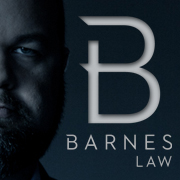Tax Evasion
How Does an IRS Criminal Investigation Begin?
![]() The Internal Revenue Service Criminal Investigation Division serves the American public by conducting criminal investigations regarding alleged tax violation and various money laundering statutes. There is a long, complicated investigation process involving many levels of personnel that goes into prosecuting these types of criminals.
The Internal Revenue Service Criminal Investigation Division serves the American public by conducting criminal investigations regarding alleged tax violation and various money laundering statutes. There is a long, complicated investigation process involving many levels of personnel that goes into prosecuting these types of criminals.
IRS criminal investigations begin when an auditor or collections officer detects possible fraud. The first part of the preliminary process is a primary investigation, in which questionable information is further explored reevaluated. An IRS supervisor will then decide whether or not the investigation should be continued and further delved into. The next part of the process is called the “subject criminal investigation.”
During the subject criminal investigation, multiple techniques are used to determine when and how fraudulent activity occurred, as well as the level of impact that the alleged criminal activity has created. Investigators may interview third party witnesses, conduct video surveillance, get search warrants for a home or office, subpoena bank records and review financial data.
If the criminal investigation results in sufficient evidence to continue a case, the evidence will be reviewed by the supervisory special agent, Centralized Case Review, the criminal investigation assistant special agent in charge and the criminal investigation special agent in charge. Lastly, the special agent in charge will make the final determination as to whether or not the case should be prosecuted with the Department of Justice, Tax Division or the United States Attorney for all other investigations.
If you believe you are being investigated by the IRS it is imperative that you speak with a lawyer. The impact of an IRS investigation and prosecution can be immense, and without an experienced attorney you may be subjecting yourself to a financial catastrophe and public embarrassment.
 Barnes Law LLP
Barnes Law LLP
601 South Figueroa Street, #4050
Los Angeles, CA 90017
(213) 330-3341
http://barneslawllp.com/
Largest Tax Evasion Case in US History
American telephone entrepreneur Walter C. Anderson is convicted of the largest tax evasion case in United States history.
Anderson started his telecommunications career in sales at MCI communications in the late 70s. Later in his career during the 80s and 90s he heavily invested in several telecommunication companies, which he later sold and turned into his fortune. The most high-profile investment Anderson was involved in was the MirCorp, the company that dealt in the privatization of Russian space station MIR. Anderson is thought to have invested nearly thirty million dollars into the venture.
The United States government began to investigate Anderson after he founded MirCorp and made arrangements to make the MIR space station a commercial project. The investigation was an extensive look into the business and personal activities that Anderson was involved in.
On February 26, 2005 Anderson was arrested at Dulles International Airport while on his way back from a trip to London. He was accused of hiding his wealth in offshore companies in the British Virgin Islands as well as Panama in a direct attempt to avoid taxation on his income. Anderson was held in a Washington DC Jail for nearly 2 years with out bail since he was considered a flight risk.
On September 8, 2006 Anderson pleaded guilty to two felony counts of evading federal income tax. Anderson failed to claim over $126 million in 1998 and $238 million in 1999. In his plea agreement, Anderson admitted to hiding $365 million of income by using aliases, offshore tax havens, shell companies, and secret accounts. The US tax court decided that Anderson would have to pay over $141 million in tax deficiencies, another 100 million in penalties, and addition interest for a grand total of $248,962,929 and the reigning record for the largest tax evasion case in US history. Walter Anderson is set to be released from jail December 29th 2012.
Tax evasion is under the umbrella of white-collar crime but the crime can carry severe penalties. Anderson was sentenced to 9 years in prison for his crime. If you are being investigated for a white collar crime it is advisable to speak with an attorney once you come under investigation. Contacting an attorney is the best move you can make if you are arrested and questioned about an ongoing investigation. The police only have 72 hours to charge you or they must release you, If you are not charged it is likely the investigation will continue and you may be charged at a later time.